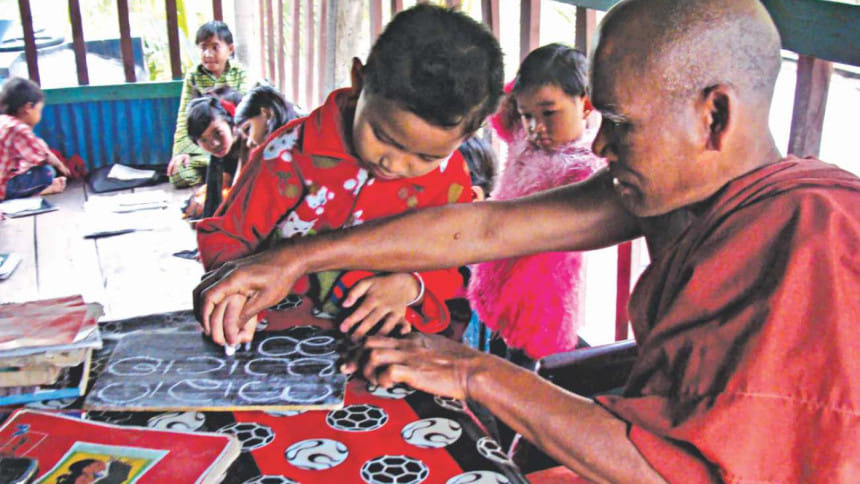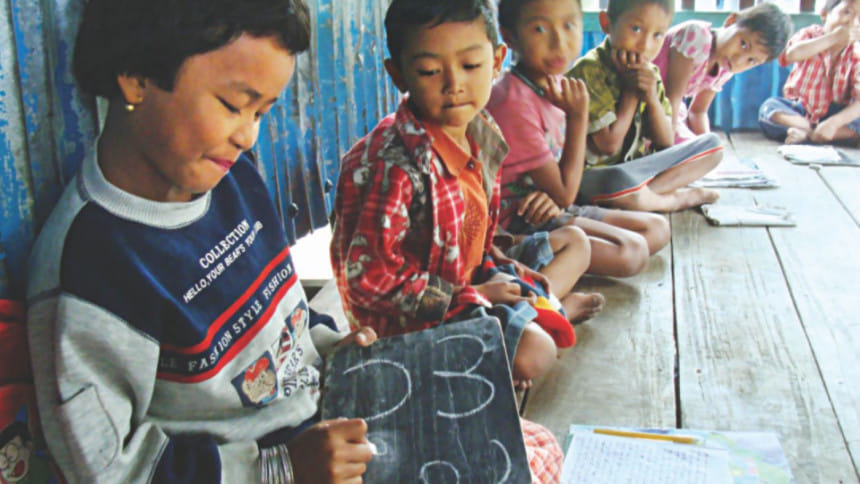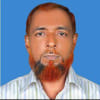Monk on a mission

The importance of one's mother tongue is perhaps nowhere better understood than in Bangladesh. A mother tongue is an indispensible fundament of self-identity. Armed with such understanding, Buddhist monk Utuchitta Mohathero from Amkholapara temple in Patuakhali's Kuakata is making efforts to ensure the next generation of his Rakhine community do not lose touch with the Rakhine language.
“Knowledge of written as well as spoken Rakhine is very important for our community,” he says. “Many religious books are written in Rakhine. In the generation that are now parents, many can speak Rakhine but not read or write it.
They had no chance to learn. For the upcoming generation, we hope to change that.”
At least 30 young students gather regularly at his “Bijoyrama Buddho Bihar” education centre within the temple compound where classes are held from 7:00am-9:00am and at 3:00pm-4:00pm. Classes are free.
“I never had the opportunity to learn to read and write in my mother tongue,” says one student's guardian, Tan Nan. “I send my six-year-old daughter Tameche to the temple classes so she will be able to.”
“My son Chandaw studies Rakhine at the temple,” states another guardian, Monanching. “The language is important for our religious education.”

It's an issue close to the hearts of many. At meetings held last year by development organisation Nazrul Smriti Sangsad which, in cooperation with NGO Manusher Jonno Foundation, has been implementing a three-year social engagement project within the community, fostering the Rakhine language was raised as a key concern.
“From community feedback last March,” says the development organisation's executive director Shahbuddin Panna, “we helped to establish two language centres in May last year, where around 40 children study. More centres are needed.”
Monk Utuchitta Mohathero believes the government has a greater role to play. “Government assistance in facilitating textbook supply, setting up schools and appointing teachers for Rakhine language instruction would be greatly appreciated,” he says.
Already the local Kalapara upazila administration is contributing, providing a monthly honorarium of Tk 4,000 to the monk in each centre, according to upazila chairman Abdul Motaleb Talukder. Text books are currently sourced from local NGO Caritas.
There are more than 1,100 Rakhines in Kuakata, from around 300 families in 23 villages, with 142 children under five years old.


 For all latest news, follow The Daily Star's Google News channel.
For all latest news, follow The Daily Star's Google News channel. 



Comments